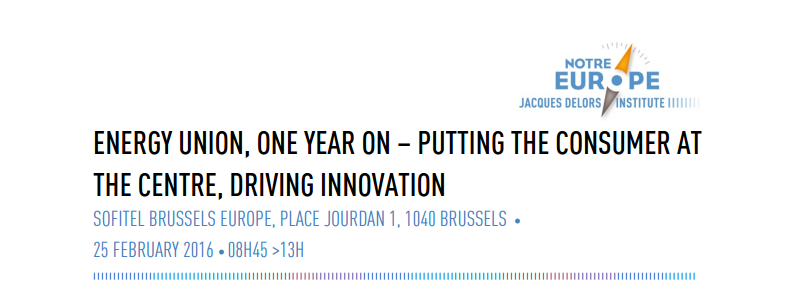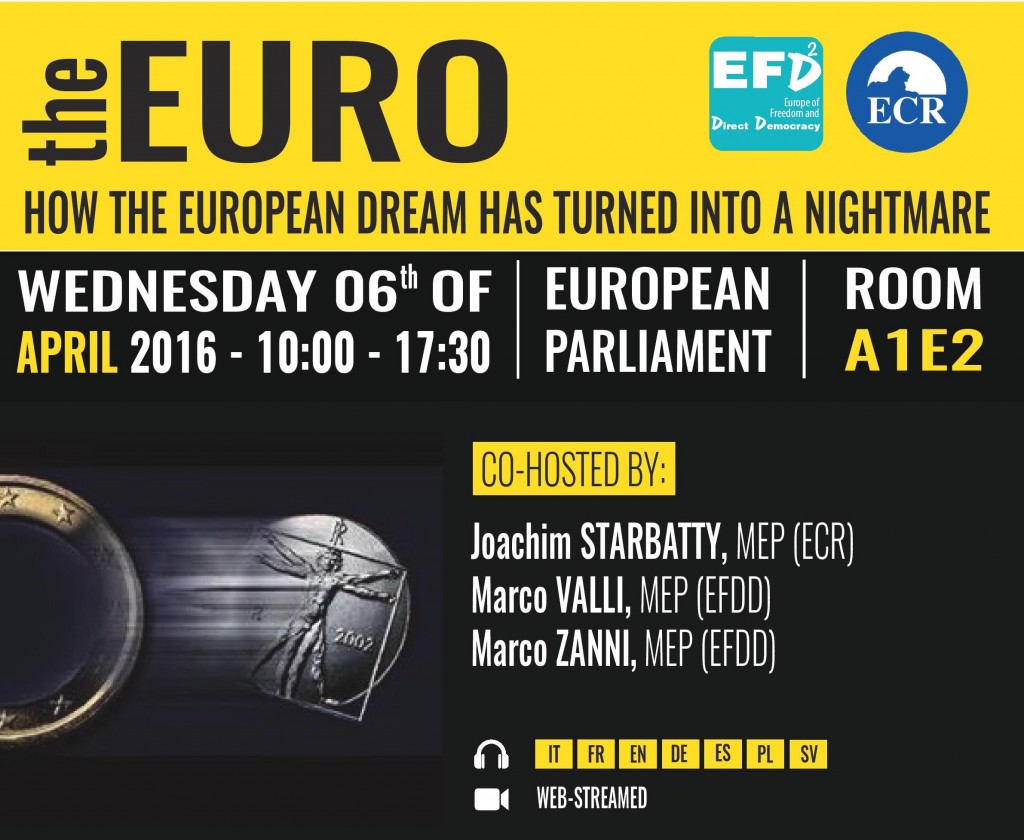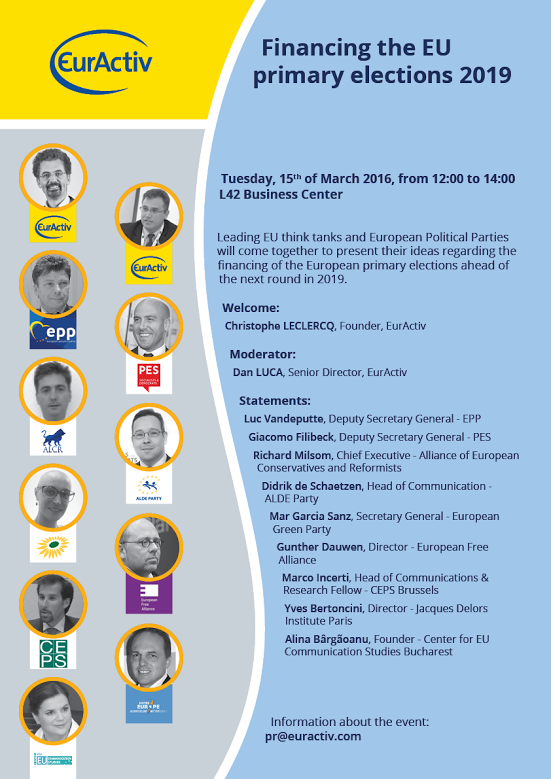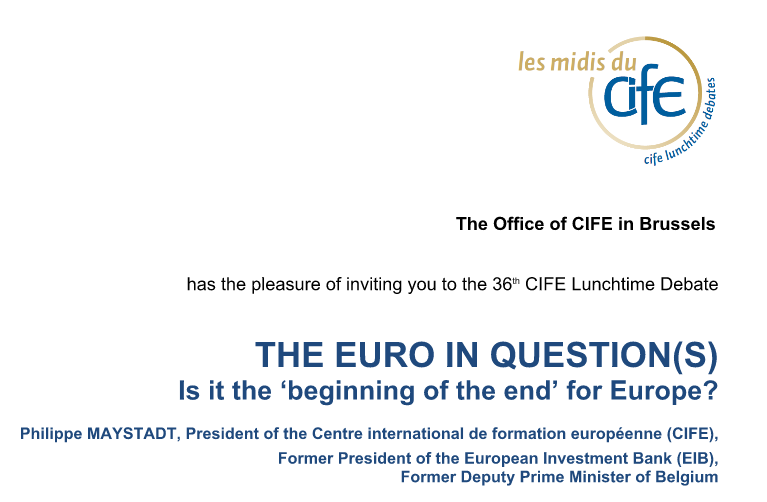
A Discussion Forum on Fiscal and Monetary Policy in the Euro Area
Date
Address
Event Type
Organiser type
Section
Event Location
Event Description
Date :Friday 21st September 2012
Lunch 12.15 – 13.00
Presentation and Discussion 13:00 - 15:00
The EVENT
This EABCN Discussion Forum will consider a range of issues, such as, moving from rescue packages to a better steady state, coordination of fiscal policy among euro area country members, criteria for fiscal sustainability and enlarging the role of the European Central Bank.
This event will bring together leading academics, regulators and practitioners from across Europe and around the world. Guest speakers include:
Christopher Sims (Princeton University)
Jordi Gali (CREI)
Jean Pisani-Ferry (Bruegel and Université Paris-Dauphine)
Stephanie Riso (European Commission)
Albert Marcet, Scientific Chair of the EABCN will be moderating the discussion.
Each speaker will provide a 15-minute presentation on issues related to the topic. This will be followed by a one-hour discussion that will be open to the floor. Our aim is to have an informal, off-the-record, discussion that will engage and involve all participants in response to the presentations.
REGISTRATION
We would very much welcome your personal participation. Please register your interest in attending at http://www.cepr.org/meets/ltm/1804/ as soon as possible;
Should you require any further information about this event, please contact Craig Rooney, Meetings Assistant, at crooney@cepr.org or + 44 (0) 207 183 8817.
I look forward to seeing you on 21 September.
Albert Marcet
Scientific Chair, EABCN
---
Christopher Sims
Christopher Sims is currently the John F. Sherrerd ‘52 University Professor of Economics at Princeton University. Together with Thomas Sargent, he won the Nobel Memorial Prize in Economic Sciences in 2011. His Nobel lecture was on statistical modeling of monetary policy and its effects, and the award cited their "empirical research on cause and effect in the macroeconomy". He earned his A.B. in mathematics from Harvard University in 1963 and his PhD in Economics from Harvard in 1968. He has held teaching positions at Harvard, University of Minnesota, Yale University and, since 1999, Princeton. He has published numerous important papers in his areas of research: econometrics and macroeconomic theory and policy. Among other things, he was one of the main promoters of the use of vector autoregression in empirical macroeconomics. He has also advocated Bayesian statistics, arguing for its power in formulating and evaluating economic policies. He also helped develop the fiscal theory of the price level and the theory of rational inattention. He is a Fellow of the Econometric Society, a member of the American Academy of Arts and Sciences and a member of the National Academy of Sciences. In 1995 he was the president of the Econometric Society and is currently president of the American Economic Association. He also wrote the article 'The precarious fiscal foundations of the EMU', De Economist, 1999, about the subject of the current event.
Jordi Gali
Jordi Galí is currently Director of the Centre for Research in International Economics (CREI), in addition to being a Research Professor at the Barcelona GSE and Professor at the UPF. He earned his PhD in Economics at the Massachusetts Institute of Technology (MIT) in 1989. He has also held academic positions at New York University and Columbia University, and was Visiting Professor at MIT. In 2005 he received the Yrjö Jahnsson Award in Economics, and has also won the Rei Jaume I Prize for Economics (2004), the VII Prize of the Catalan Society of Economics (2008) and the Catalan National Research Prize (2011). His main areas of research are macroeconomics, monetary theory, and macroeconometrics. His influential findings have had a large impact on a variety of topics, particularly business cycles, inflation, exchange rates and the conduct of monetary policy. He is Fellow of the Econometric Society, President of the EEA, and holds research positions at the Centre for Economic Policy Research (CEPR) in London, and at the US National Bureau of Economic Research (NBER). He has written a large number of articles on the subject of the event. As an example, he was one of the authors of ‘The Monetary Policy Strategy of the ECB Reconsidered’ (2004) and ‘Defining a
Macroeconomic Framework for the Euro Area’ (2001) in the series ‘Monitoring the European Central Bank’, edited by CEPR.
Jean Pisani-Ferry
Jean Pisani-Ferry is currently the Director of Bruegel and professor of economics at the Université Paris-Dauphine. After having held positions in research and government in France, he joined the European Commission in 1989 as economic adviser to the Director-General of DG ECFIN. From 1992 to 1997 he was the director of CEPII, the main French research centre in international economics. In 1997, he became senior economic adviser to the French minister of Finance and was later appointed executive president of the French prime minister’s Council of Economic Analysis (2001-2002). From 2002 to 2004, he was senior adviser to the director of the French Treasury. He has held teaching positions with various universities including Ecole polytechnique in Paris and Université libre de Bruxelles. His research interests include economic policy, international macroeconomics and European economics. He has regular columns in Le Monde, Handelsblatt, and the Chinese magazine Century Weekly. He is a contributor to The Financial Time’s A-List and to Project Syndicate.
Stephanie Riso
After her university studies in economics, concluded by a DEA in international economics and finance at Paris-Dauphine, Stéphanie Riso joined the European Commission in 2000, after a short period in the world of finance. After having worked as Economist in the Directorate General for Economic and Financial Affairs (DG ECFIN) on different issues (monetary and exchange rate issues, budgetary policy, structural reforms), she joined in 2007 the private office of Commissioner Almunia in charge of the Economic and Monetary Affairs and in 2010, she became Deputy Chief of the private office of Commissioner Rehn in charge of the Economic and Monetary Affairs. Last October, she was nominated Head of the unit in DG ECFIN dealing with budgetary policy and surveillance.
Related Events
The Great Recession and the European debt crisis have reignited the debate about deeper fiscal integration in the Eurozone. Supporters of further integration argue that fiscal risk sharing is necessary to increase the resilience of the European economy against macroeconomic shocks.
Join us to discuss financial literacy as a key transversal, supporting long-term outcomes like entrepreneurship and employability!
Europe's commitment to a single capital market dates back nearly 60 years.

“Education and training 2020 - giving today's young people the workplace skills they will need”

Building namely on a policy proposal made by the Jacques Delors Institute, the European Commission tabled its ‘Energy Union Strategy’ on February 25th 2015.

The American Chamber of Commerce to the European Union (AmCham EU)
is pleased to invite you to the launch of a new study
“SMEs’ access to Finance: A new “Financing Mix” to be set up within the EU
The Case for Investing in Europe
on Wednesday 24 June 2015 from 14:00 to 18:30





























